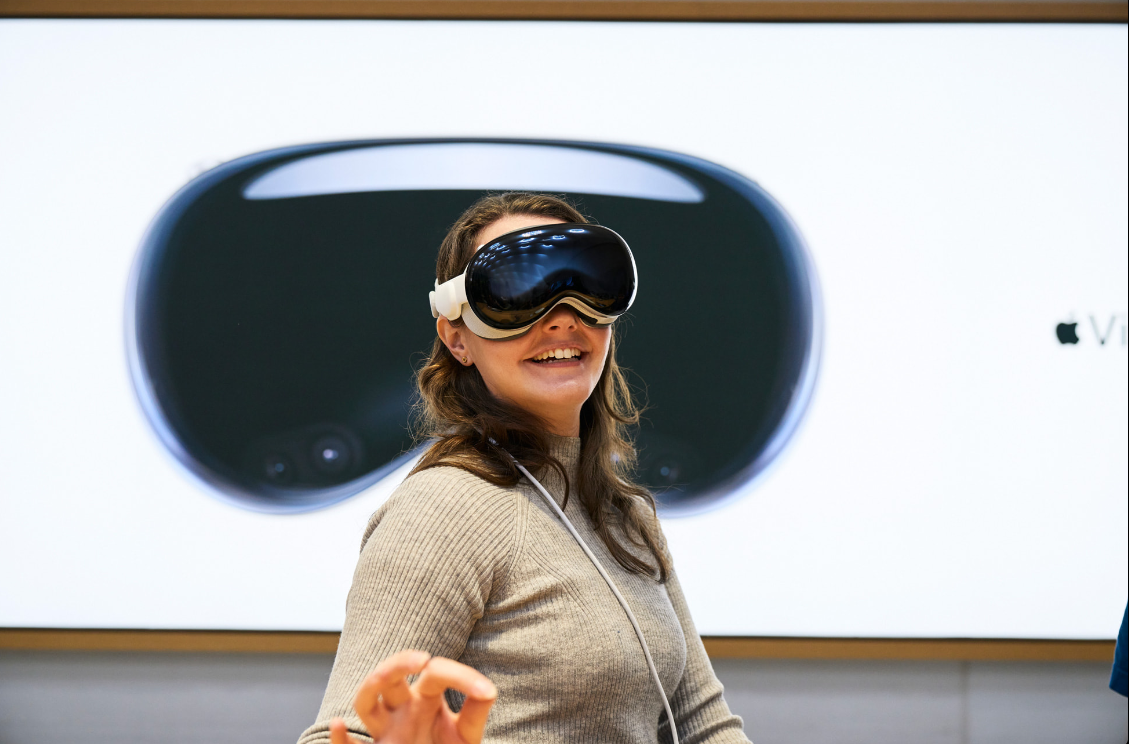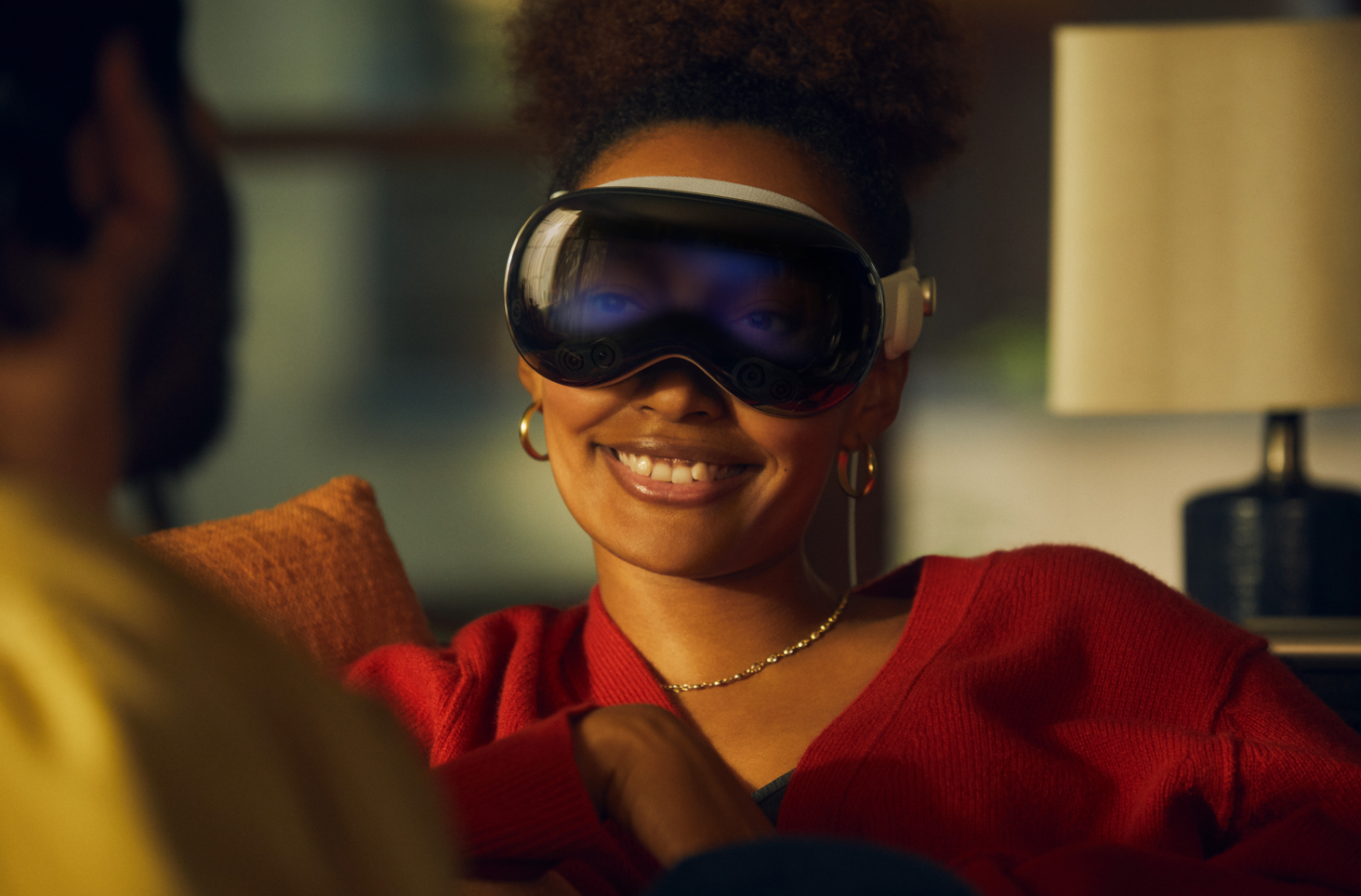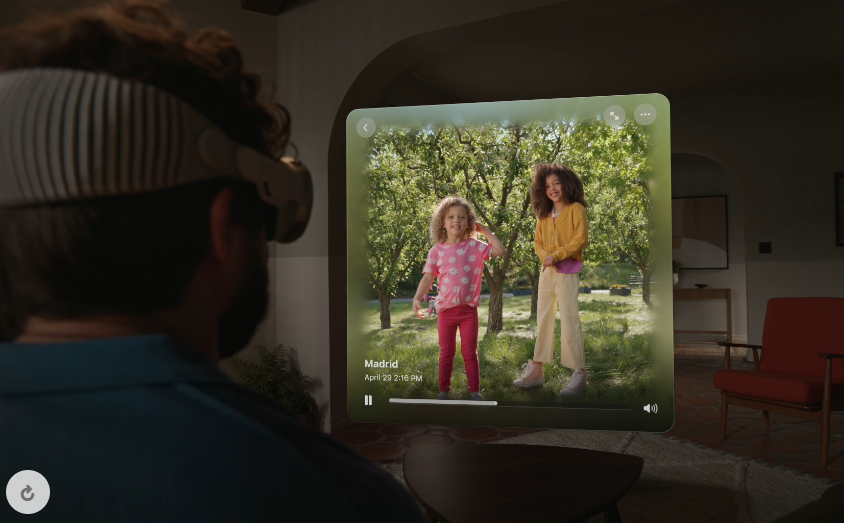Teaching With the Apple Vision Pro
It’s early days for the Apple Vision Pro, but educators already see the new technology's potential as well as its limitations.

As you may have heard, Apple Vision Pro, Apple’s new immersive headset, was recently released. Apple is saying the Vision Pro will launch the “era of spatial computing,” and touting features such a micro OLED display, 3D cameras, and advanced eye and motion detection ability that allows users to type and interact with displays without needing a keyboard or mouse.
Right now it’s too soon to say what impact the Apple Vision Pro will have on education. Experts see many great features that could potentially be used in teaching. However, the tool currently costs $3,499, which can be prohibitive for schools (or anyone, really). And there are other possible classroom limitations beyond its price.
Kathryn Hirsh-Pasek, the Stanley and Debra Lefkowitz Faculty Fellow in the Department of Psychology at Temple University and a Senior Fellow at the Brookings Institution, and Frank Bergdoll, a veteran teacher who hosts the Learning and Technology with Frank YouTube channel, discuss the Apple Vision Pro and its potential impact on education.
Apple Vision Pro: Teaching Potential
Forgetting price, there are many ways in which Apple Vision Pro could be used to support teaching.
“It will give kids the opportunity to bring an IMAX into a classroom,” says Hirsh-Pasek. This is because the Apple Vision Pro comes equipped with the ability to play movies on a screen that can be adjusted to each user’s desired size, and Apple has also announced a partnership to bring IMAX documentaries to the device.
Hirsh-Pasek adds that the tool can give students a truly immersive experience, such as the opportunity to visit ancient lands and explore other worlds.
She was also impressed by the tool’s EyeSight feature, which alerts Vision Pro users when someone is nearby by bringing the person into their field of vision while also clearing the way for the user’s vision. Hirsh-Pasek sees this as a breakthrough over previous immersive gear and a concept that could allow for more AR/VR collaboration among students, and make spending time in these experiences less dangerous.
Tools and ideas to transform education. Sign up below.
“It means you're less likely to bump into a desk,” she says. “And I can't tell you when I've done immersive reality how many people have bumped into walls and desks.”

Downsides Beyond Price
Bergdoll notes that schools often have expensive pieces of equipment in classrooms, including interactive whiteboards and projectors as well as other AR/VR headsets. However, these devices can be utilized by multiple students at the same or one after the other in quick succession.
“My main concern with the Apple Vision Pro is that it does seem to be a highly personalized device that doesn’t lend itself well to sharing,” Bergdoll says. “For many AR/VR experiences, we would not want learners to be immersed throughout the entire day – so sharing a device would be ideal.”
The Apple Vision Pro needs to be calibrated to the eyesight and hands of each user, and while this isn’t an incredibly time-consuming process, it’s far from instantaneous. Passing the device back and forth between 20 to 30 students during one class period would most likely be impractical.
And this isn't the only limitation. As impressed as Hirsh-Pasek is with the Apple Vision Pro, she doesn’t believe it makes use of all the advantages immersive technology could provide in education.
“It's still a more passive than active system,” Hirsh-Pasek says. “We all learn better when actively engaged in something rather than just watching something.”

Larger Impact
AR/VR and other immersive metaverse-style technologies are used frequently in schools but have never been able to break into the education mainstream or beyond. The Vision Pro could change that as Apple has a long history of pushing the envelope with new technology.
“Apple has a strong reputation for building technology with a user focus,” Bergdoll says. “The Vision Pro will very likely spar a lot of innovation around competing hardware, and especially the software and media ecosystem that develops around it.”
Apple Vision Pro apps are available in the app store and Bergdoll predicts that will attract developers, which will attract consumers in a virtuous circle.
Hirsh-Pasek agrees and notes that Apple has a coolness factor that will likely bring extra attention. “Every time Apple comes out with something, everybody goes to try to create the next iteration,” she says. “So in that sense, it can have real impact on the industry.”
Erik Ofgang is a Tech & Learning contributor. A journalist, author and educator, his work has appeared in The New York Times, the Washington Post, the Smithsonian, The Atlantic, and Associated Press. He currently teaches at Western Connecticut State University’s MFA program. While a staff writer at Connecticut Magazine he won a Society of Professional Journalism Award for his education reporting. He is interested in how humans learn and how technology can make that more effective.

